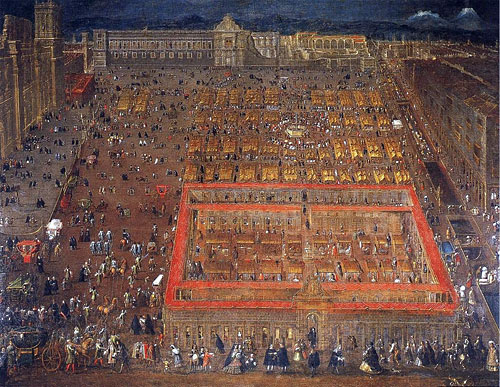489.001
Special Topics in Art and Culture: Envisioning the Colonial Metropolis in the Early Modern Atlantic World
TTh 1:00-2:30
180 Tappan
3 Credit Lecture. Meets with LACS 455.002

This course explores urbanism and its representations in the colonial enterprises of Spain and Portugal from the 16th to the 18th century. Focusing on four cities, Mexico City (Mexico), Cuzco (Peru), Luanda (Angola), and Salvador da Bahia (Brazil), we will analyze how the policies adopted by the Spanish and Portuguese crowns led to the development of different types of cities, and how indigenous populations contributed to the distinctively local texture of each urban fabric. Bringing together analytical writings on urbanism, architecture, and space with close formal consideration of these cities and their representations in pictorial, cartographic, and literary media, we will consider how urbanism on the one hand and its social uses on the other hand contributed to the political and religious enterprise of colonialism, shaped colonial identities, and helped fashion notions of race and gender. Along with architecture, both durable and ephemeral, and city planning, the class will consider cities as spaces of social and economic interactions, examining processions, parades, and marketplaces as key elements of these cities of empire. Estimated cost of materials: $50 or more, but less than $100. B.E.3

